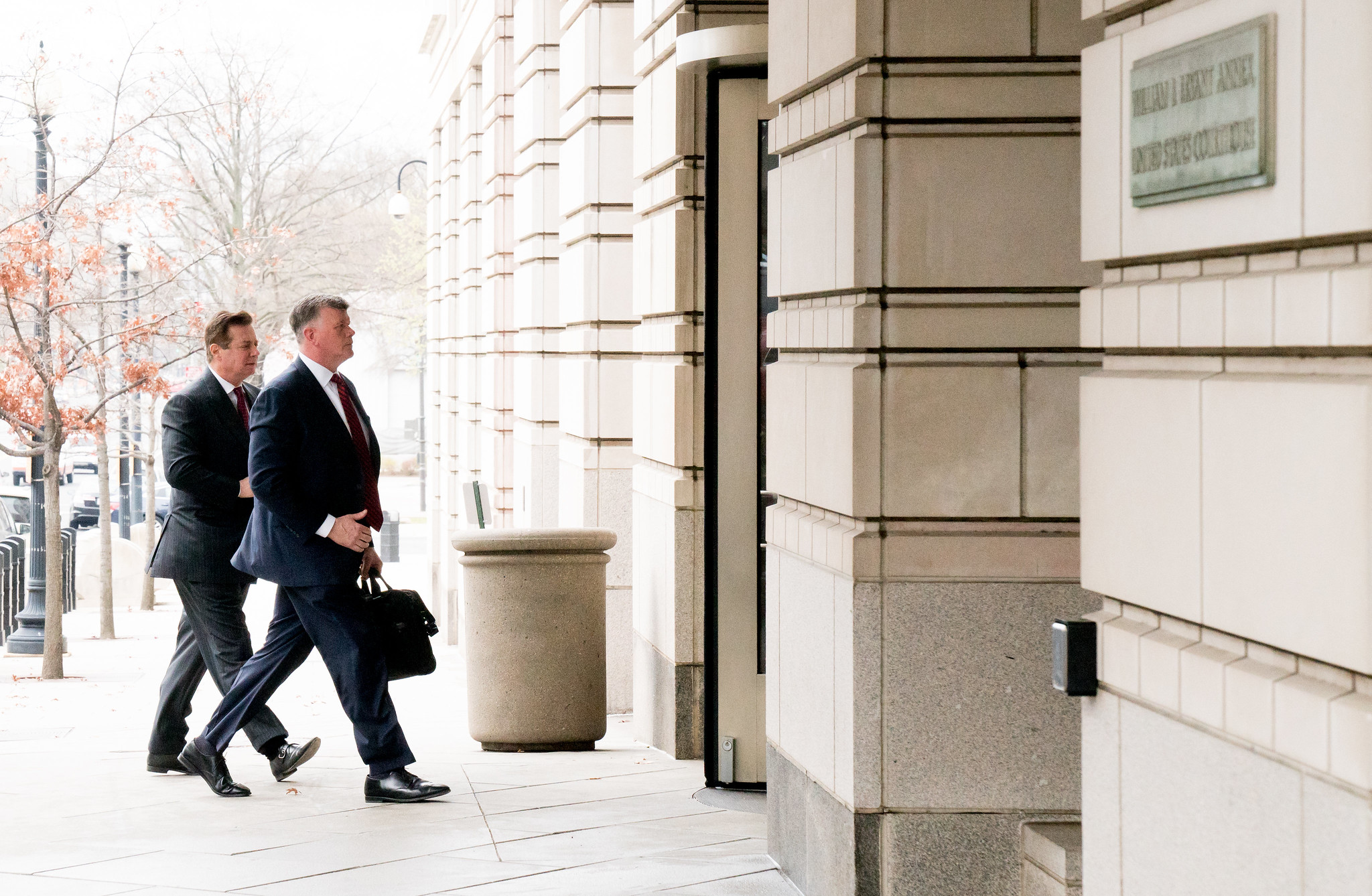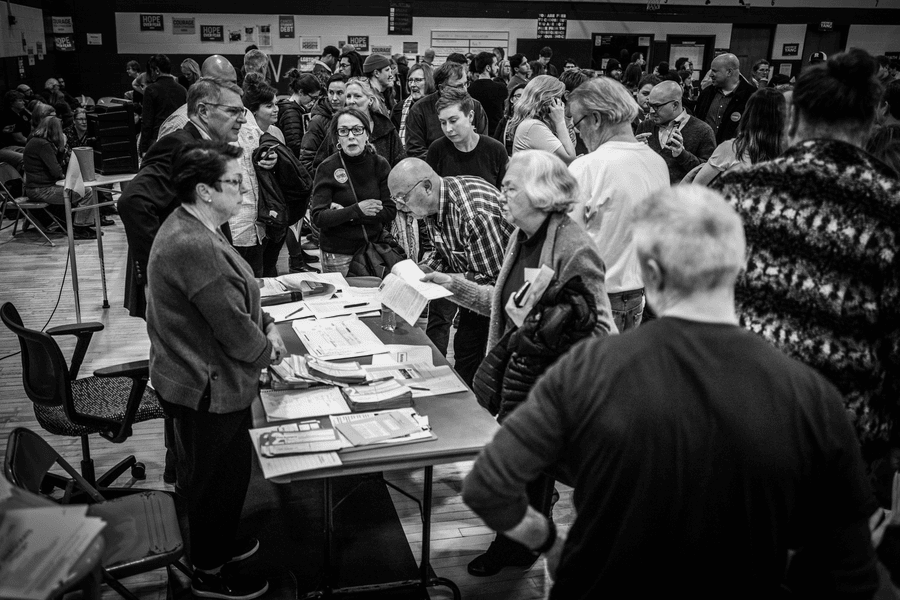How to Prevent Foreign Election Interference
The United States has tools to protect its elections, but needs to use them.

Published by The Lawfare Institute
in Cooperation With

“Trump is our only hope for a better future!”
“Vote Republican, vote Trump, and support the Second Amendment!”
“We cannot resort to the lesser of two devils. Then we’d surely be better off without voting AT ALL.”
Expressions like these appeared widely on United States social media in 2016, many—like the last quote—aimed at suppression of the Black vote. These pronouncements were made not by Americans, but by Russians working for Kremlin-linked organizations with the anodyne names Internet Research Agency and Concord Management. They employed hundreds of people and ran a multimillion-dollar operation that flooded American social media. The goal was not just to “sow social discord,” as Attorney General William Barr later claimed in his description of the special counsel report—it was to elect Trump. These organizations denigrated Trump’s Republican adversaries during the 2016 primary; actively promoted Democratic presidential candidate Bernie Sanders over his rival, Hillary Clinton; and aimed particularly to suppress Black turnout in the 2016 election. And on Election Day, they celebrated by popping champagne and cheering that Russia had “made America great again.”
Did any of this work affect a single vote? The 2016 Russian operation reached the ears and eyes of tens of millions of Americans, and the 2016 election was decided by fewer than 100,000 votes. But what actually influenced voters is largely unknowable. It is damaging enough, though, that Americans can reasonably question whether a foreign government surreptitiously swung the 2016 election.
Russia continues its efforts to undermine U.S. elections today. For instance, Russian actors are currently spreading the word that voting by mail is subject to fraud—echoing comments made by the president himself. Yet little is being done to hold the Kremlin to account. The United States has the prosecutorial tools to protect its elections, but it has lacked the will to use them forcefully.
The public learned about the scope and details of the Russian election interference as a result of the investigation by the special counsel’s office, in which I served, along with dozens of dedicated Justice Department lawyers and FBI agents and analysts. In February 2018, a grand jury indicted three Russian companies and 13 Russians for spearheading this “information warfare” against the United States. The two Concord companies were scheduled to go to trial in spring 2020—but that never happened.
Instead, in March 2020, the charges against the two Russian companies were quietly dismissed. Attorney General Barr pulled off another insidious attack on the rule of law. This was not Barr’s first intervention in cases that have grown out of the special counsel’s investigation. Much has been written about Barr’s seeking to dismantle our prosecutions of Michael Flynn and Roger Stone. Barr pushed the Justice Department’s move to dismiss Flynn’s criminal conviction—even though the former national security adviser pleaded guilty twice to lying to the FBI—on the basis of a legal theory that the Justice Department rejects when made by any other defendant. And Barr softened the department’s sentencing recommendation in Stone’s case, undercutting career prosecutors and ignoring the facts and law. Later, of course, Trump commuted Stone’s sentence—shielding him from any pressure that prison might impose to reveal why he lied to Congress for the president.
The ground for the Justice Department’s dismissal of the Concord case rings as hollow as the Flynn dismissal motion. Barr’s attorneys claimed that a change in the classification of evidence would have made prosecution more difficult. But we at the special counsel’s office made sure that sufficient unclassified trial evidence existed before we brought the criminal case. And these indictments were signed off by the Department of Justice’s National Security Division. Perhaps the Trump administration chose to reclassify that important trial evidence. But given the administration’s track record of declassifying documents at will whenever it suits the president’s political purposes, regardless of the consequences to U.S. intelligence, it is hard to imagine that such reclassification could have taken place in good faith.
What’s more, in dismissing the criminal case against the two Russian entities for election interference, Barr sent Russia a clear and dangerous message: It need not worry that the U.S. criminal law will hamper Russian efforts to support Trump in the upcoming election. He also cleared the way for Trump to continue his denials of past Russian election interference with no fear that a federal trial in advance of the 2020 election would provide the public and media with concrete proof to refute the president’s false claims.
The enabling of foreign actors goes deeper, though, than the dismissal of our criminal case. U.S. law makes it illegal for foreigners to donate money or anything of value to election campaigns—and for Americans to accept such help. Another law, the Foreign Agents Registration Act (FARA), goes further: It prohibits any foreigner from lobbying U.S. officials—or seeking to influence American public opinion—without publicly registering all such efforts. And when such conduct is undertaken on behalf of a foreign principal, all media and lobbying material needs to be clearly labeled as such and must note that additional information about the principal is on file with the Department of Justice.
Together, these laws could do valuable work to protect the integrity of U.S. elections. But until recently, FARA rarely has been criminally enforced by the Justice Department, and rarely adhered to by foreign agents. Here’s one example we uncovered in the special counsel investigation. In 2012-2014, Paul Manafort—who would later become the chairman of the Trump campaign—orchestrated a massive publicity and lobbying effort on behalf of Viktor Yanukovych, the pro-Russian president of Ukraine. Manafort formed the “Hapsburg group,” made up of former European leaders from Austria, Italy, Poland and elsewhere, to carry out his plan. Their names were tacked on opinion pieces to promote Ukraine causes. Planted on the European Parliament committee charged with Ukraine oversight, a Habsburg group operative spied on the committee’s inner workings and reported back to Manafort. And in May 2013, the group obtained a meeting in the Oval Office with President Obama, posing as disinterested European leaders who supported Yanukovych—dutifully reporting this meeting back to Yanukovych and Manafort. Under the table, Ukraine paid the Hapsburg group millions of dollars for this work.
U.S. law required public disclosure of these payments and all of their efforts targeting U.S. government leaders. But no disclosures were made. The opinion pieces by the group had to carry with them a “conspicuous” affixed notice that the writers worked for Ukraine. But they didn’t. This was not unusual. Ask yourself: How many times have you seen opinion pieces in major news outlets with such a disclaimer? Probably not often—but that’s not because autocratic foreign governments aren’t secretly proselytizing in support of their interests.
That these illegal foreign measures have gone largely unchecked is not for lack of warnings. Republican Sen. Chuck Grassley has an admirable record of sounding the alarm that the existing law is not being prosecuted sufficiently, and his oversight on the matter spawned a Justice Department inspector general report that reached the same conclusion. Most recently, in August 2020 the bipartisan Senate Select Committee on Intelligence released a report that—in addition to confirming the major findings by the Mueller investigation—recommended closing a loophole in FARA that enables foreign governments to evade the law by creating private front companies to appear to carry out their influence campaigns. Private organizations are subject to less rigorous disclosure requirements, but detecting such cutouts is a challenge. For instance, Ukraine took advantage of this loophole by creating a Brussels outfit—the European Centre for a Modern Ukraine—that in reality was a puppet for Yanukovych and Manafort’s machinations. Yet the loophole remains on the books, permitting countries to mask their illegal conduct.
Going hand-in-hand with the lack of political will to put teeth into FARA is the lack of prosecutorial zeal that has historically plagued the Justice Department. Prior to our prosecutions of Manafort and others for FARA violations, the past decades saw only a handful of criminal cases to enforce the law. When the special counsel’s office proposed bringing FARA charges to the Justice Department—which had to approve such charges, even when brought by Mueller—I was told that the department was concerned that the fear of criminal charges would lead people not to comply with the law. Because secrecy advances the interests of foreign influence campaigns, that position made little sense—and our office won that debate. In fact, soon after we brought our first FARA charges, the number of people who registered under the law jumped dramatically.
What can be done, in addition to congressional reforms to the law or beefed-up Justice Department enforcement? The recent FARA-related charge filed against former Republican National Committee fundraiser Elliot Broidy is a welcome sign of the department’s interest in enforcing the law. But more can be done. Right now, politicians and government leaders who care about FARA can insist on asking third parties with whom they meet whether they are paid by any foreign government or person, and require their answers in writing. Newspapers can do the same before printing op-eds, and social media companies can require such certifications before people register for an account. Foreign governments up to no good will still lie, but prosecutions will be far easier with clear written records. To make real change and protect American democracy from foreign influence campaigns, Congress and the Justice Department must act—rather than sitting and watching idly so long as the influence operations support their own political party.



.jpg?sfvrsn=d8787e74_5)

